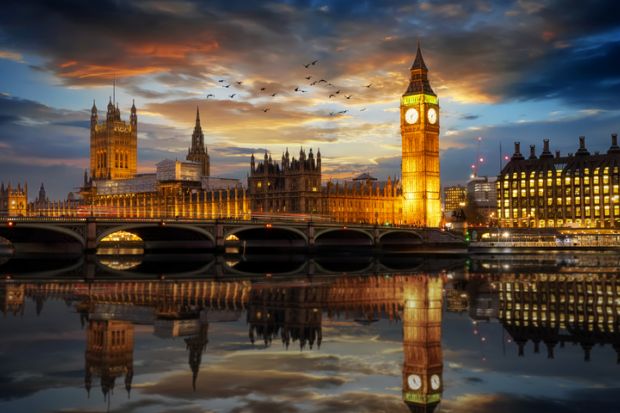Restrictions on face-to-face teaching in English universities are set to end on 19 July, from when social distancing “will no longer be necessary”, the education secretary has said.
In line with the government’s earlier announcement that the Step 4 of lifting all Covid restrictions on 19 July will go ahead, Gavin Williamson made a statement to MPs on rules for schools, colleges and universities.
“Key restrictions on education and childcare will come to an end as we move to Step 4,” he said.
The system of “bubbles” in operation in schools, colleges and universities will come to an end, with the NHS Test and Trace service taking responsibility for contact tracing.
There will be “no restrictions on in-person teaching and learning in universities unless students are advised to isolate or impacted by local outbreaks”, Mr Williamson said.
The end of restrictions in education would result in a “more proportionate” system and would aim for “baseline” protections while “maximising attendance and minimising disruption”, he added.
Enhanced hygiene and ventilation requirements would remain in place for the autumn term, said Mr Williamson.
“From Step 4, face covering will no longer be advised for pupils, students, staff and visitors either in classrooms or in communal areas, and social distancing will no longer be necessary,” he added.
Jo Grady, general secretary of the University and College Union, said: “The government said it would be led by data not dates, but it is scrapping health and safety measures in education while cases are climbing rapidly. The shocking outbreaks we have seen in colleges and universities over the past academic year show that educational settings act as Covid incubators and help the virus spread rapidly.
“Worryingly, it appears the government has learned nothing, and is set to repeat the same mistakes, abandoning important safety measures too early and showing a continued reckless disregard for health and safety.”
She added: “Yet again, the government is shifting responsibility for managing a national health crisis on to employers, an approach that proved catastrophic last time. We need robust Covid health and safety measures and [to] have a majority of the student population vaccinated.”
Register to continue
Why register?
- Registration is free and only takes a moment
- Once registered, you can read 3 articles a month
- Sign up for our newsletter
Subscribe
Or subscribe for unlimited access to:
- Unlimited access to news, views, insights & reviews
- Digital editions
- Digital access to THE’s university and college rankings analysis
Already registered or a current subscriber?








